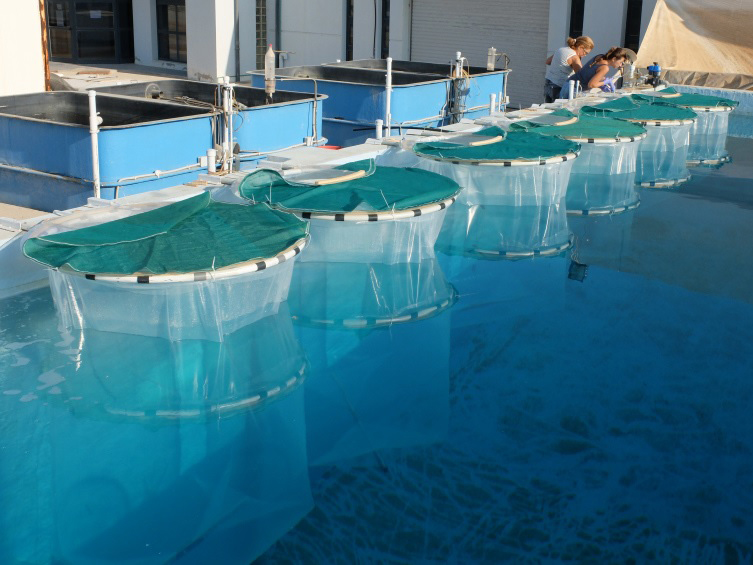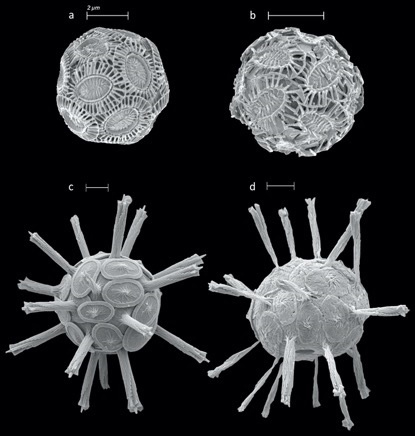Patrizia Ziveri – Universitat Autònoma de Barcelona (UAB)
Carbon dioxide (CO2) emissions by human activities have alarmingly increased in the past decades. A quarter of this anthropogenic CO2 has been absorbed by the ocean, changing the chemistry and ultimately lowering the pH of the seawater, a phenomenon known as ocean acidification. The extra heat trapped in the atmosphere due to greenhouse gases is also causing the seawater warming. The process hampers the supply of nutrients to the upper ocean layers, due to a sharp stratification of the surface water column. Atmospheric warming is expected to evolve in the Mediterranean area 20% faster than the global average, and marine heatwaves will occur with increasing frequency by the end of the 21st century, with serious consequences for marine biodiversity and production. Coccolithophores, a very abundant group of marine calcifying phytoplankton, play a major role in the biogeochemical cycles and in the regulation of the global climate. These tiny algae, which measure 1/1000 of a mm, are at the basis of the aquatic trophic chain, and interact with atmospheric and oceanic CO2 through calcification and photosynthesis. The study detailed the behaviour of these algae under conditions of water temperature ≥ 28°C and a pH of approximately 7.8 units. The results highlight a negative effect of thermal stress on coccolithophore cell production and calcification. Likewise, anomalous calcification in this group of phytoplankton was associated with ocean acidification. This highlights the importance of looking at species-specific responses to climate change and addressing their specific adaptation mechanisms. Scientists believe that, due to the progressive increase of CO2 emissions in the atmosphere, the risks derived from ocean warming and acidification will become even more acute in the coming decades, thus changing the plankton communities of the Mediterranean. In the future, a clear understanding of the interactions between the different components of the plankton communities will be essential to better understand the future impact of environmental changes on their adaptation and productivity.

